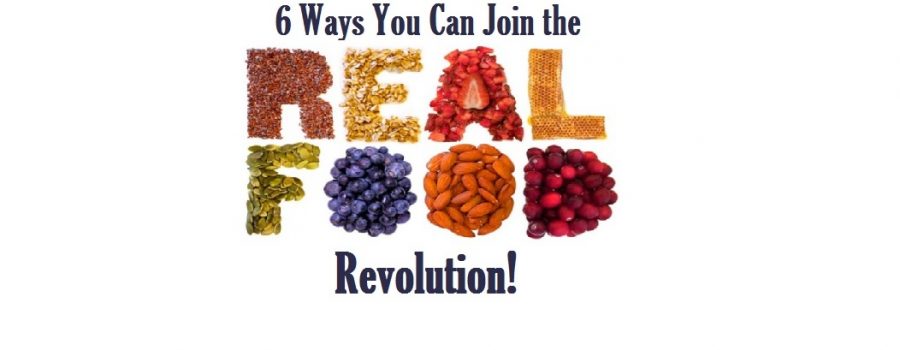Our Failing Food System
Its no secret that big corporations like P&G, Kelloggs, Coca Cola, Kraft and so on don’t have your health in mind when making thier products. They may say they do but their bottom line usually trumps the wellness of the population.
“In short, federal dietary recommendations have very little to do with actual nutrition science, and everything to do with promoting foods that serve the junk food industry’s bottom line, not the public health.” (Read this article- How the USDA Can Make or Break Public Health)
Our foods are laden with dyes, pesticides, herbicides, fungicides, neurotoxins, modified sugars and fats among other carcinogenic ingredients which are affecting our long term health.
Our failing food system is costing us a lot! You are what you eat. Eating toxic and processed foods has great impacts on your long term health as well as the world we live in.
The following video is really interesting because a family that normally eats all conventional food went 100% organic and the results after 2 weeks are really amazing.
The down side of focusing on eating only organic is that these foods can still be shipped from all over the world depleting the nutrients present in the foods. Also, other countries have different standards and laws that apply. And, organic farming isn’t always what we think. There are over 20 chemicals commonly used when growing and processing organic crops which are approved by the US Organic Standards. (read Myth Busting 101: Organic Farming)
Just because a company may produce organic foods doesn’t mean thier practices are humane or sustainable. Chemical run off, mass factory farms with stressed and sick animals, monocultures of crops and soils stripped of nutrients all play a big role in the health of our food and the fine balance of the environments causing major issues to many ecosystems… that includes the neighborhood you live in.
Another issue people argue is that we cannot feed the worlds’ population without the use of mass factory farms and all the unhealthy synthetic chemicals, pesticides and processes that go along with it endangering our local and global environments as well as our health. But studies have shown the gap in product yield between organic and non organic farms to be very small. (See World Watch article) People like Joel Salatin are proving that local farmers can sustainably and humanly produce healthy food plants and livestock to feed a larger population while maintaining the health and diversity of the environment.
In a 2008 World Development Report, the World Bank found that, “investment in peasants (by peasants they are talking about the poor farmers in many countries living off of $1 and $2 per day) was among the most efficient and effective ways of raising people out of poverty and hunger.” (Interesting documentary to watch would be Living on One)
What does this all mean? Supporting local farmers that use sustainable practices has huge impacts on many aspects of the economy, the environment and our health! Buy local and know your farmers!
Where do you come in?
Well, YOU VOTE WITH YOUR DOLLARS
That’s right, every dollar you spend, tells these companies what you care about. Consumers have a big impact on what companies sell based on what consumers want and will pay for.
More and more people are becoming aware of our food industries issues and depressing problems but there is a lot you can do that will make a difference!
Join the Real Food Revolution!
1. Create demand for real food
Support local farmers, farmers markets and other community supported agriculture (CSA) programs. (find a CSA near you here or go to Find Sustainable Food as well as EatWild.) Make the time for it! This is your health, your children’s health, your great, great, great, great grandchildrens’ health and the world they will live in.
My husband, kiddos’ and I garden in our backyard, we buy eggs and veggies every week from the farmers market or the local farm 15 minutes away and we buy local meat in bulk 2-3x per year (to keep costs down) and store it in a chest freezer. We prioritize this as is it health insurance for us, our children and their children…. MN winters pose more of the problem on the fresh veggie front so I hit up the local co-op during these cold winter months.
Its also important to note that you should know your famers and thier practices. Just because they are local doesn’t mean they are farming sustainably and healthfully.
2. Reconnect with the land
Start your own garden. You don’t even need a yard! (Search vertical gardens in google or click on the pic below )
 Don’t have time, have someone do it for you! See Your Backyard Farmer to start your search!
Don’t have time, have someone do it for you! See Your Backyard Farmer to start your search!
3. Cut down on meat consumption or switch to sustainably farmed products.
Again, buy local meats from happy animals. Also, it doesn’t matter what diet you are doing, diets higher in veggies have shown across the board to be healthiest. A low carb or paleo diet doesn’t mean eat mass quantities of meat. Eat normal amounts of protein and up the veggies! Your waist line with thank you too.
4. Do your best to limit processed foods
Eat more fresh and whole foods and healthy fats as well as reduce your refined sugar intake. This will have a great impact on your health and the demand you place on stores to provide you with what you want.
5. Learn about national, regional, and local food policy issues and join other like minded people and organizations that are working to make real food affordable and more accessible.
We keep up with The Traditional Food Warehouse MN group on yahoo groups. We have made many connections and found endless resources through the many wonderful people we have met.
6. Educate yourself on how to read nutrition labels.
Look out for red flag ingredients like hydrogenated oils, high fructose corn syrup, nitrites and nitrates, MSG, food dyes, artificial sweeteners like aspartame and other words you cannot pronounce. (More on reading food labels here)
Teach your children how to read food labels and involve them in shopping and cooking whole, local foods.
Featured image from http://fitnessinthecity.com.au/nourish/paleo-paleo-paleo













3 Comments
Leave your reply.